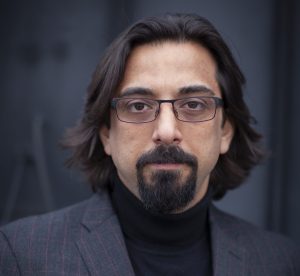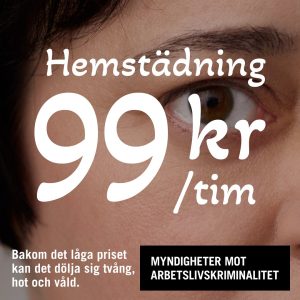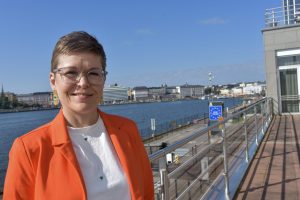The slender, delicate trees are weighed down with yellow-red Aroma apples. A few rows further on grows a later-ripening variety of deep-red apples.
This year’s harvest at the Grannas apple orchard in northern Åland is in its final stretch. The picking began in August, and by the end of October, all the apples should be picked.
Read the article in Swedish on Arbeidliv i Norden
Between the rows of trees, a team of around ten pickers are calmly and methodically – it is important not to damage the fruit – filling their waste bags with ripe apples.
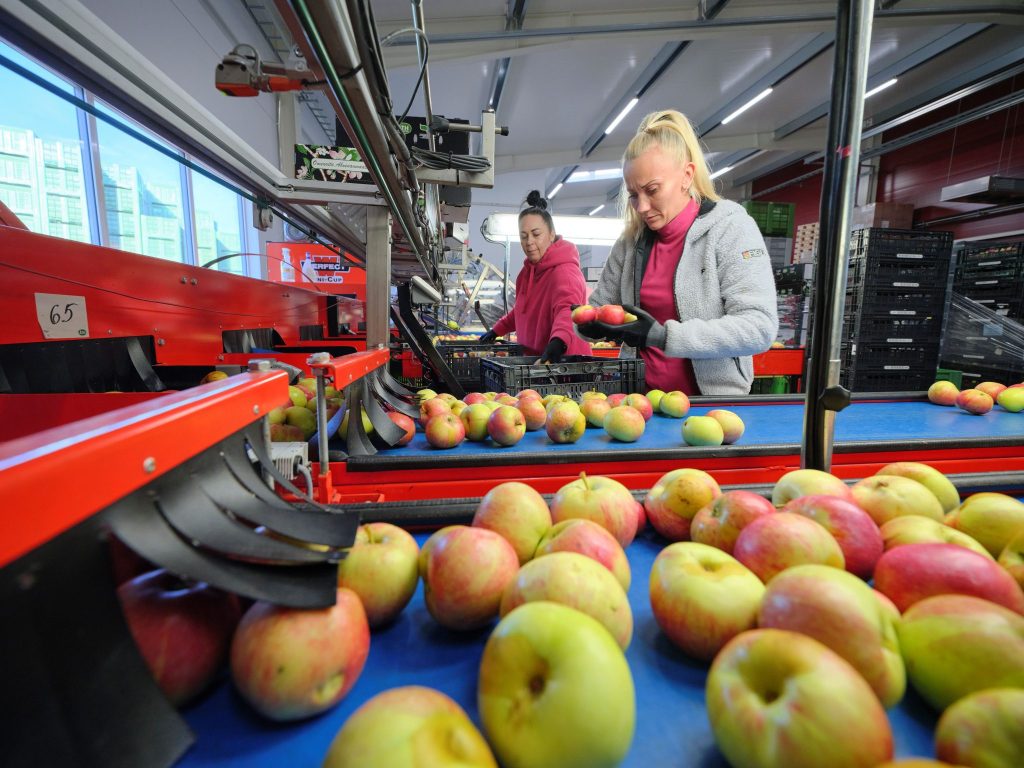
In the sorting hall, the apples are rinsed before moving on down a conveyor belt that sorts them according to size. Later, critical eyes and busy fingers remove fruits that fail to live up to a first-class standard.
Juice is pressed in an adjacent hall, where the capacity is 10,000 litres at a time.
“Last year was extremely good for us. This year, however, the harvest is below normal,” says Jan Mattsson at the family business Grannas.
Good conditions
It was forward-thinking farmers in the 1940s who discovered that Northern Åland is an excellent place for apple growing. The small plots of land are better suited to fruit cultivation than to grain, which requires large areas.
And the soil – light and in places stony – is ideal for the trees. Water for irrigation has been readily available from nearby ponds.
Åland also has the warmest climate in the whole of Finland, with many sunlight hours, and the autumn lasts longer, thanks to the surrounding ocean’s residual heat after the summer..
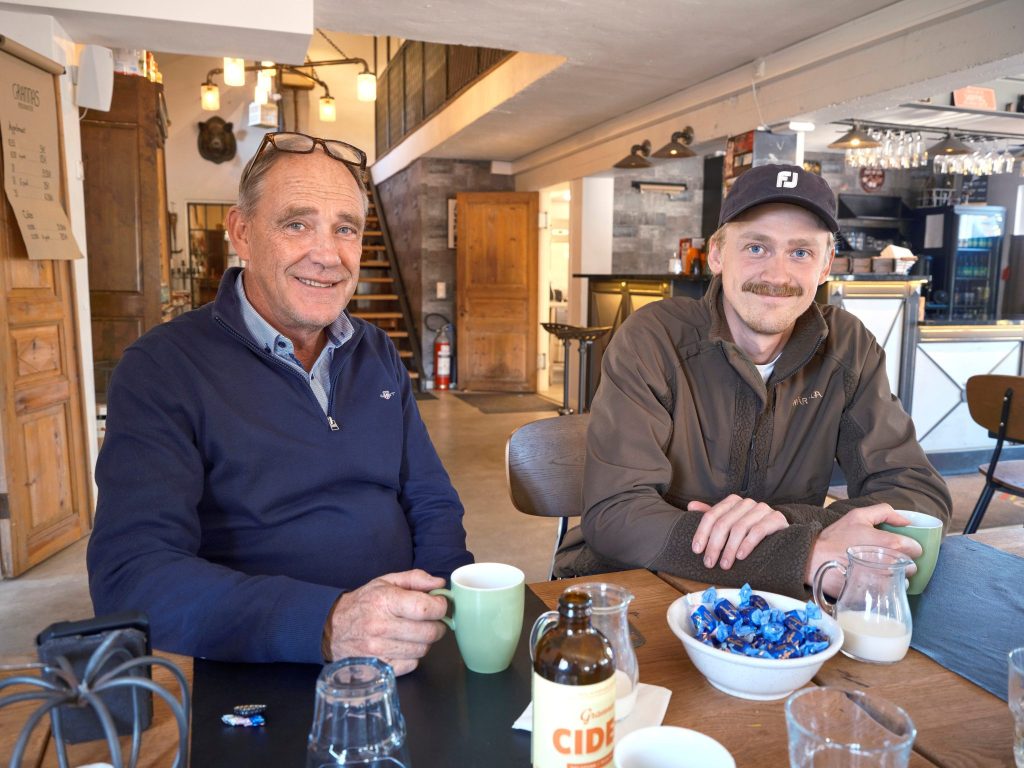
The first apple growers gathered a lot of knowledge and experience, but they did not only grow apples. They also cultivated other vegetables like sugar beets, onions and cucumbers.
When it was time to harvest the apples, the growers could usually get by only with the help of friends and acquaintances.
Later generations have taken apple growing to a completely new level. Today, most growers specialise in apples. They have invested large sums in new plantations, equipment and buildings.
They are, by Åland’s standards, major employers during the most intensive part of the harvest season.
One of Åland’s largest
Grannas apple orchard in the village of Västanträsk is one of Åland’s largest. Jan Mattsson took over from his father Robert. Jan’s son Ken has trained to be an agronomist at the Swedish University of Agricultural Sciences and is ready to follow in his father’s footsteps.
Åland – Finland’s apple orchard
Despite its limited area, the island region of Åland is Finland’s apple orchard. Åland’s growers account for over 70 per cent of the country’s total apple production.
Finland, however, is far from self-sufficient in apples; a large share of consumption consists of imported fruit.
In 2024, Åland sold apples for 7.3 million euros. The harvest was an estimated 5 million kilos. Apples were the single largest source of income for Åland’s farmers, closely followed by milk, with onions in third place.
Åland has around 30 apple growers cultivating a total of about 300 hectares. The largest orchards cover around 40 hectares. With an average of 3,200 trees per hectare, the biggest orchards have roughly 120,000 trees.
Growers have increasingly invested in processing. The part of the crop that does not meet first-class standards is turned into juice and cider. The industry is entirely dependent on foreign labour, with around 300 people needed during the peak season.
Grannas slowly but surely expanded their growing area from seven hectares in 2000 to 45 hectares today. Apple trees have been planted on land that once held forests or grazing animals.
All the old, larger trees have been replaced. Today, smaller trees are used, growing close together along trellises. They are bought in Belgium and have an estimated 20-year lifespan.
Before, large amounts of apples were dumped in the forests to the delight of local deer. These were apples that were too small or had defects, making them unsuitable to be sold as first-class.
But in 2007, Grannas invested in the kind of equipment needed to turn these kinds of apples into juice, which they sell in bottles and bag-in-boxes.
Once they had ventured into drinks, the next step – which required further investments – was the production of alcoholic cider.
Longer storage
The biggest growers now have so-called ULO (Ultra-Low Oxygen) storage facilities – major investments in themselves.
The low-oxygen environment stops the ripening process, extending storage times. As a result, you can now buy apples from Åland until March-April.

ULO storage requires expertise. Not all varieties of apples are suitable, and if something goes wrong in a hundred-tonne storage facility, things can get very expensive. So, for the past two years, the sector has hired a Dutch specialist who visits to provide valuable knowledge and advice.
No problem
Grannas employs around 50 people during the most intensive harvesting months. Most of them come from Lithuania and Ukraine.
“We have no problem getting labour. They find us before we find them, and many return year after year. Some have been with us for more than 20 years.
“They take two to three months off from their normal jobs to be able to work here. The training works well, they teach each other, and we sort out accommodation,” say Jan och Ken Mattsson.
“We have around 10 people employed year-round who take part in pruning, which begins after the New Year. They are permanent residents of Åland. Several of our Ukrainian workers also stay, since they don’t have a safe home to return to.”
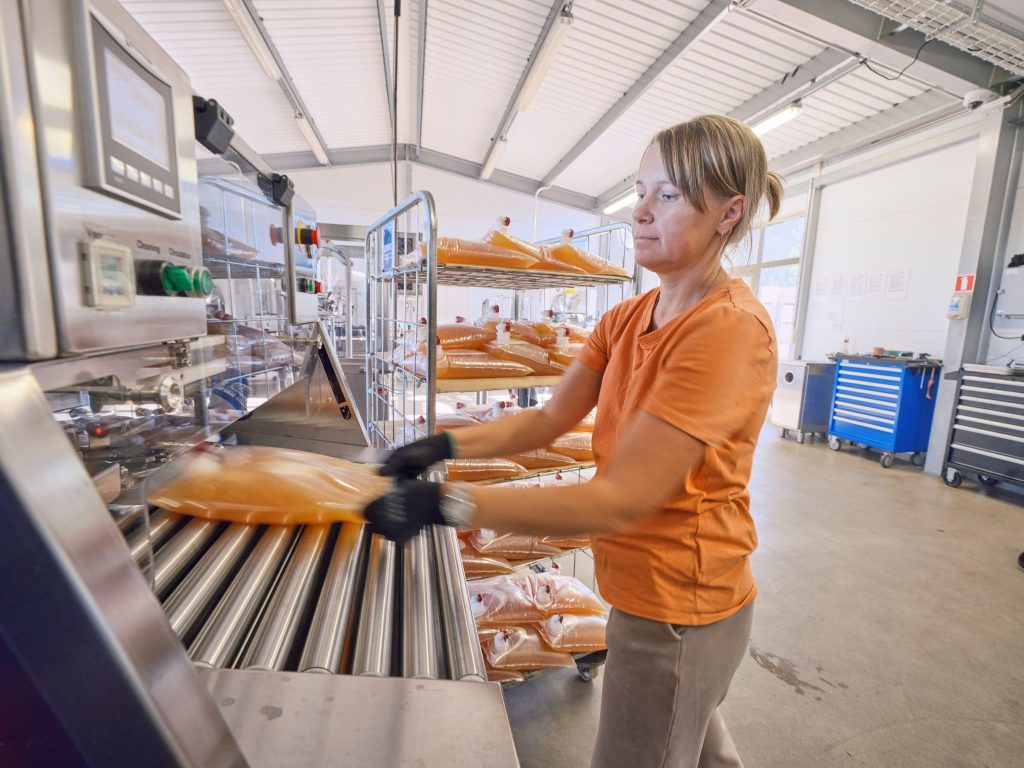
The regulations governing the industry, both in terms of the actual cultivation and staffing issues, are considerable.
“We are regularly subjected to unannounced inspections. In addition to knowing about the cultivation itself, we must know about legal issues, HR, administration and custom rules,” says Ken Mattsson.
Capital is needed
Pernilla Gabrielsson is an adviser to fruit and berry growers at the Ålands hushållningssällskap (Åland’s agricultural society).
“Apple growing has been a success for many Åland farmers, but that doesn’t mean anyone can just start up. It requires knowledge, experience, and above all, capital.
“Investment costs are high, and it takes several years before you see a return from your first plantation. Prices are always a concern as operating costs continue to rise.
“New regulations concerning, for example, plant protection products, can also mean more manual work is needed, which in turn leads to higher costs,” she says.
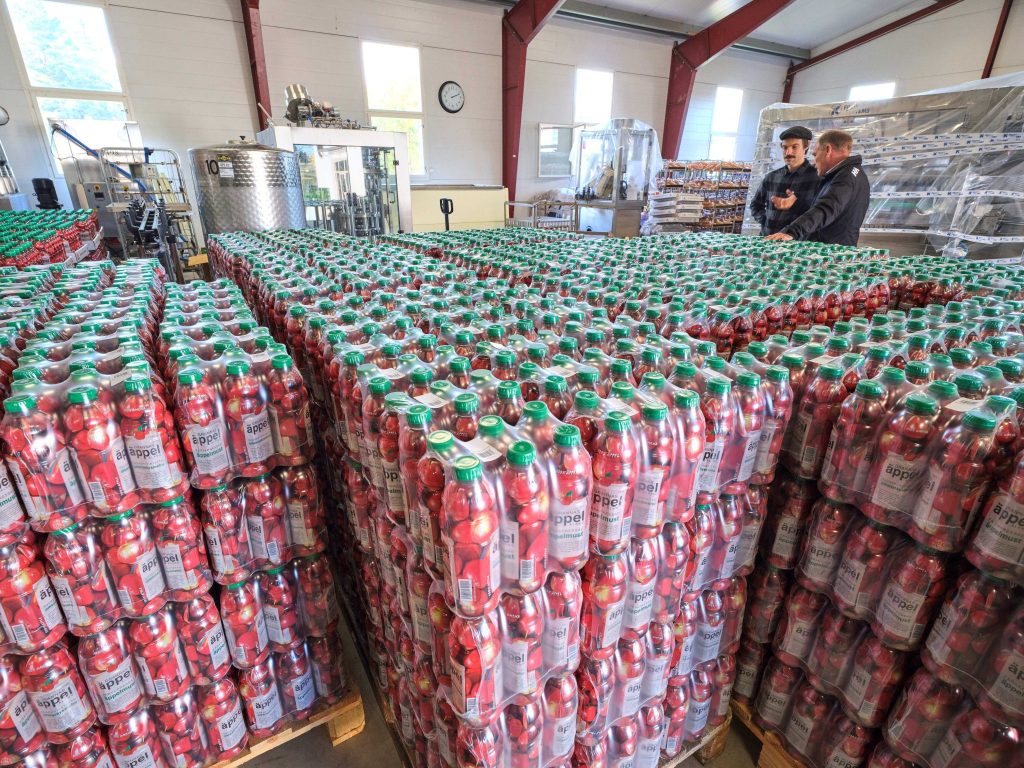
Another issue has emerged: Should growers try new varieties now that the climate is changing, and if so, which types?
Ålands hushållningssällskap runs a small test orchard where they test different varieties that may be of interest in the future.
Major export
Almost all the fruit growers sell their harvest through Ålands Trädgårdshall, a company owned by the growers themselves. It takes care of the export to buyers in Finland. Only a small percentage of the fruit is sold locally in Åland.
Tom Sarling is the purchasing manager for apples.

“Right now, we’re happy with the number of apples we deliver and are not encouraging new growers. It’s always a balancing act – a too large harvest drives prices down.
“We also have growers who have ventured into a new niche – commercial pear cultivation. But for now, the quantities are still very small compared to apples – around 400 to 500 tonnes a year,” says Tom Sarling.



